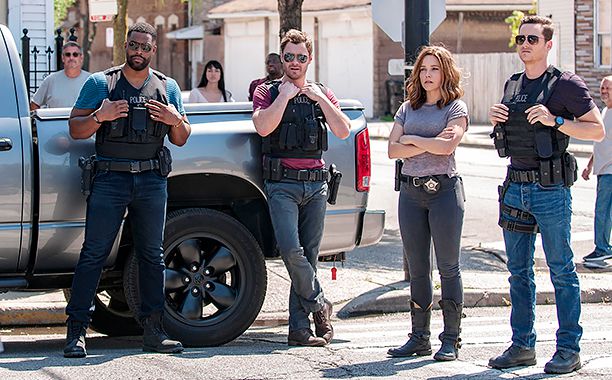
The siren’s wail is the city’s heartbeat, a raw, percussive thrum that underscores the perpetual grind of justice in the asphalt labyrinth of Chicago. For years, Chicago P.D. has etched this sound into the collective consciousness of its viewers, painting a gritty portrait of men and women who straddle the thin, often blurred, line between law and chaos. Each new season promises to drag its beleaguered Intelligence Unit through the moral muck, but the whispers circulating about the impending season suggest a shadow deeper, a threat more insidious, and a series of emotional stakes so profound they threaten to unravel the very fabric of Sergeant Hank Voight’s fiercely loyal, yet perpetually fractured, team.
This new season, it is rumored, ushers in an antagonist unlike any before. Not merely a kingpin of drugs, a cold-blooded serial killer, or a corrupt politician, but something far more chilling: a puppet master, a manipulator who understands the psychology of his prey, particularly the deeply scarred psyche of those who hunt him. Let's call him "The Architect." His sinister nature isn't born of brute force, but of intellectual malevolence. He doesn't just commit crimes; he stages them, meticulously crafting scenarios that don't just victimize the innocent but systematically target the vulnerabilities and moral compasses of the Intelligence Unit itself. Imagine a series of seemingly disparate events—a carefully planned explosion at a city landmark, a high-profile kidnapping that goes sideways, a string of seemingly unrelated suicides—each leaving behind a cryptic clue, a personal touch designed to prick at a specific officer's deepest fear or darkest secret.
The emotional stakes, therefore, ascend to an unprecedented height. For Sergeant Voight, The Architect's machinations represent a direct challenge to his iron-fisted, morally ambiguous leadership. Voight, whose methods have always hovered just outside the lines of legality, might find his past decisions weaponized against him. The antagonist could expose old secrets, force him into impossible choices that alienate his team, or even worse, replicate the very traumas Voight has spent a lifetime trying to bury. Picture Voight, his face a mask of stone, clenching his jaw in the tense silence of the bullpen, grappling not just with the threat to the city, but with the haunting realization that this enemy knows him, perhaps better than he knows himself. The emotional toll would manifest in the quiet moments, the late-night visits to his son’s grave, the flicker of doubt in his usually unyielding eyes.
Detective Hailey Upton, whose own journey has been one of battling inner demons and the pull of Voight's darker ethics, would find her fragile scaffolding of ethics under siege. The Architect, with his psychological games, could mirror her own simmering darkness, forcing her to confront the ugly truths about the justice she seeks. He might engineer situations that push her to the absolute brink, making her question every choice, every sacrifice she’s made. We would witness her sleepless nights, the frantic scratching of her pen on a notepad, trying to decode the antagonist's riddle, all while her internal voice screams doubts about her own capacity for good. The fear would be less about physical harm and more about the shattering of her identity, the erosion of the line she desperately tries to hold.
And then there’s Officer Kim Burgess, whose resilience has been forged in the fires of personal loss and trauma, particularly the abduction of her adopted daughter, Makayla. The Architect’s sinister approach could target this most vulnerable part of her life. He might not harm Makayla directly, but he could threaten her sense of security, making Burgess relive the quiet terror that grips a mother when her child's safety is compromised. The emotional stakes for her would be almost unbearable, an echoing phantom pain that forces her to confront the impossible balance between her duty as an officer and her instinct as a protector. The tension would be palpable in her overprotective glances, the way her hand instinctively reaches for Makayla's, even in the safety of their home.
This new season of Chicago P.D. promises to be more than just another hunt for a bad guy. It’s a descent into the psychological abyss, a profound exploration of how external evil can amplify internal turmoil. The sinister antagonist isn't just a threat to life and limb; he's a corrosive agent to the very souls of Intelligence. The emotional stakes aren’t just about who lives or dies, but about who they become in the crucible of this unprecedented challenge. It's a mirror held up to the very soul of a city and the souls of those sworn to protect it, forcing them to confront the chilling truth: sometimes, the greatest enemy lies not in the streets, but within the confines of their own tormented minds.
